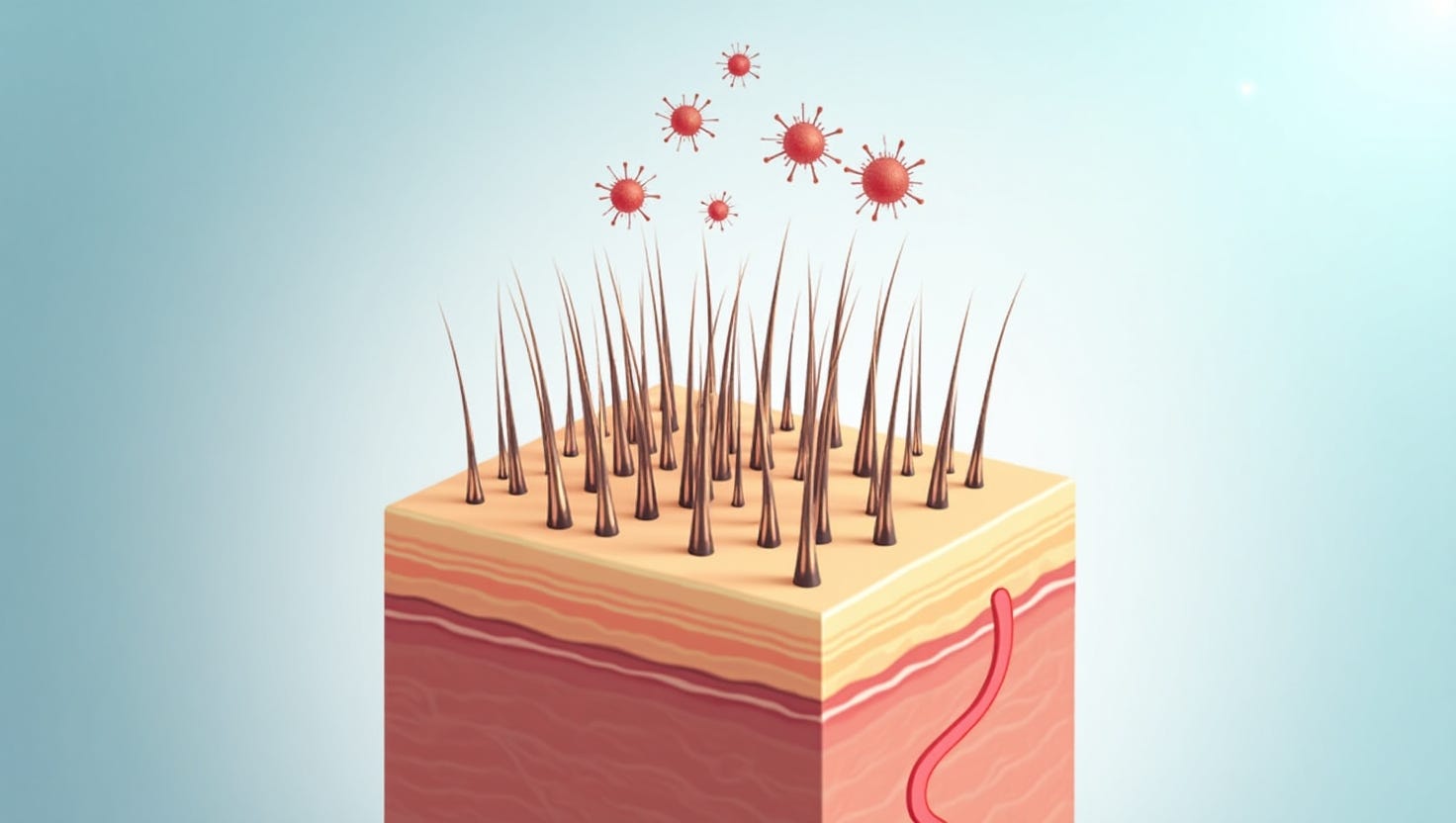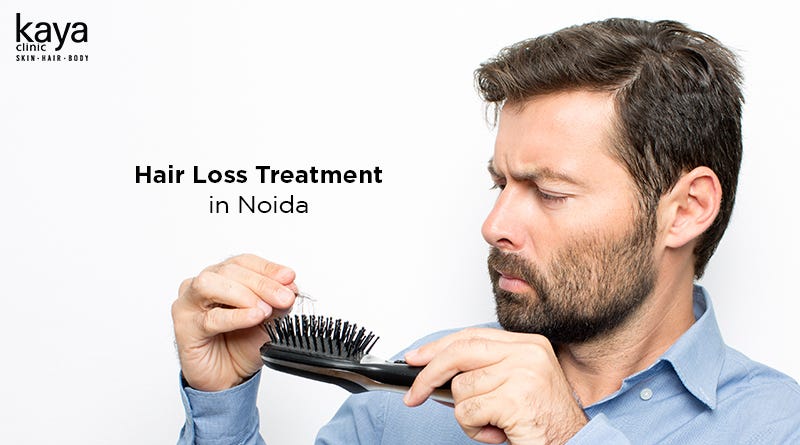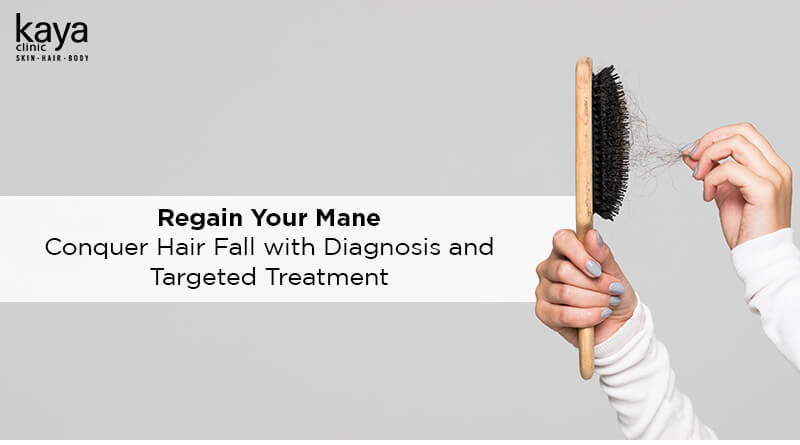Simple Home Remedies For Scalp Fungal Infections

Table of Contents
- Understanding Scalp Fungus
- What are the causes of Scalp Fungus?
- What are the symptoms of Scalp Fungus?
- How to treat fungal infection of scalp at home
- Conclusion
- Frequently Asked Questions
Understanding Scalp Fungus
Scalp fungus, or tinea capitis, is a prevalent fungal infection affecting the scalp and hair follicles. Typically caused by dermatophytes, fungi that thrive on keratin, it manifests with symptoms like itching, redness, and scaly patches on the scalp. If it is not treated on time, it can result in significant hair loss Treatment and more complications. Recognising the signs, seeking prompt treatment, and maintaining proper scalp hygiene are essential steps in effectively managing this condition and ensuring healthy hair and overall skin well-being.
Causes Of Scalp Fungus
- Dermatophytes Infection: Scalp fungi are primarily caused by dermatophytes, a group of fungi that have a particular affinity for keratin, a protein found in hair, skin, and nails. These fungi invade the scalp and hair follicles, leading to fungal infections.
- Direct Contact: Scalp fungi can be transmitted through direct contact with an infected person. Sharing combs, brushes, or headwear with an infected individual can facilitate the transfer of the fungus.
- Contaminated Objects: In addition to direct contact, using contaminated objects like combs, hats, or towels can also introduce the fungi to the scalp.
- Weakened Immune System: Individuals with poor immune systems are more vulnerable to fungal infections, including those on the scalp. A weakened immune response may allow fungi to flourish.
- Poor Hygiene Practices: Inadequate scalp hygiene, such as infrequent washing or improper hair and scalp cleaning, can create an environment conducive to fungal growth.
Understanding these causes is crucial for preventing scalp fungal infections and seeking timely treatment.
Symptoms Of Scalp Fungi
- Itching and redness of the scalp
- Small, scaly patches on the scalp
- Circular patches that may spread
- Hair loss in affected areas
- Brittle and easily breakable hair
- Pus-filled blisters on the scalp
- Tenderness or discomfort in the affected areas
- Severe cases can lead to extensive hair loss
Recognising these symptoms is crucial for timely intervention and effective treatment to restore scalp health.
How to treat fungal infection of Scalp at home
Dealing with scalp fungi can be uncomfortable and concerning. While seeking professional medical advice for proper diagnosis and treatment is crucial, several home-based remedies and strategies can help manage and reduce the discomfort associated with this condition. This guide will explore practical steps at home to promote scalp health and effectively address scalp fungi.
1. Maintaining Proper Scalp Hygiene
Keeping your scalp clean is fundamental in preventing and managing scalp fungi. Regularly wash your hair with a mild, antifungal shampoo. Gently massage the shampoo into your scalp and leave it on for a few minutes before rinsing thoroughly. Ensure your scalp is completely dry after washing, as fungi thrive in damp conditions.
2. Antifungal Hair Products
Antifungal shampoos from Kaya and topical treatments can effectively manage scalp fungi. Look for products containing active ingredients like ketoconazole, selenium sulfide, or zinc pyrithione. Follow the usage instructions carefully, and be consistent in your application.
3. Tea Tree Oil
A natural antifungal agent, tea tree oil is packed with many benefits, including managing scalp fungi. It is easy to use. Mix a few drops of oil in any carrier oil and gently apply on the scalp. Leave it on for at least 30 minutes before rinsing. This can help alleviate itching and reduce fungal growth.
4. Apple Cider Vinegar
It is another wonder ingredient available in many households. Its antimicrobial properties help combat scalp fungi. Take a cup of apple cider vinegar and mix it with an equal amount of water. Apply the mix gently on the scalp. Leave it on for 15-20 minutes before rinsing thoroughly. Be cautious not to use it if you have open sores or wounds on your scalp, as it may irritate.
5. Maintain a Healthy Diet
A minerals and vitamins-rich diet can boost your immune system's ability to fight off fungal infections. Ensure you consume foods high in antioxidants, such as fruits and vegetables, and consider taking supplements like biotin, which can promote healthy hair and scalp.
6. Avoid Sharing Personal Items
Scalp fungi are contagious. Avoid sharing personal items like hats, brushes, combs, and towels with others to prevent the spread of the infection. Ensure that these items are thoroughly cleaned and disinfected.
7. Consult a Healthcare Professional
While home remedies can be beneficial, consulting a healthcare professional at Kaya is crucial for a proper diagnosis and personalised treatment plan. Sometimes, prescription medications, such as oral antifungals, may be necessary to treat scalp fungi effectively.
Managing and treating scalp fungi at home can be effective with professional guidance. Maintaining good hygiene, using appropriate products, and making healthy lifestyle choices can eliminate symptoms and promote scalp health.
Conclusion
In conclusion, managing and treating scalp fungi at home can be a valuable complement to professional care. Maintaining proper hygiene, utilising antifungal products, and exploring natural remedies can help reduce discomfort and promote scalp health. However, it's essential to consult a healthcare professional for an accurate diagnosis and personalised treatment plan, especially in severe or persistent cases. A dermatologist can help diagnose the underlying cause of scalp fungus and recommend appropriate treatments, which might include medicated shampoos or specialised therapies. Kaya, with its expertise in skincare and haircare, can also be a trusted partner in your journey to achieving a healthy scalp. Your scalp's health matters, so don't hesitate to explore all available options to ensure it's in its best condition.
Frequently Asked Questions About Scalp Fungal Infections
Q1. What is scalp fungus, and what causes it?
A1. Scalp fungus, or tinea capitis, is a common fungal infection of the scalp and hair follicles. It's primarily caused by dermatophytes, fungi that thrive on keratin, the protein found in hair, skin, and nails.
Q2. What are the symptoms of scalp fungus?
A2. Symptoms of scalp fungus include itching, redness, small scaly patches, circular patches that may spread, hair loss, brittle hair, pus-filled blisters, tenderness, and discomfort in affected areas.
Q3. How can scalp fungus be managed and treated at home?
A3. Home remedies for scalp fungus include maintaining proper scalp hygiene, using antifungal hair products like ketoconazole shampoo, applying tea tree oil or apple cider vinegar to the scalp, maintaining a healthy diet rich in vitamins and minerals, avoiding sharing personal items, and consulting a healthcare professional for personalized treatment.
Q4. Can scalp fungus be contagious?
A4. Yes, scalp fungus is contagious and can be transmitted through direct contact with an infected person or by sharing contaminated objects such as combs, brushes, or hats.











